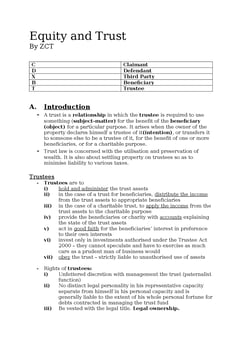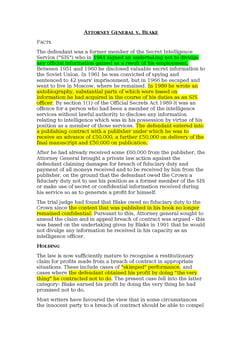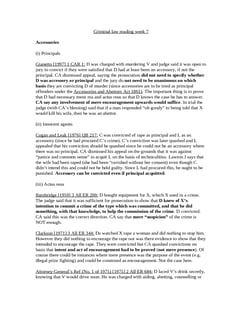Ivey v Genting Casinos (UK) Ltd t/a Crockfords [2017] UKSC 67
Judgement for the case Ivey v Genting Casinos (UK) Ltd t/a Crockfords
Table Of Contents
KEY POINTS
Gaming, from video games to traditional card games, is ubiquitous entertainment. Within this realm, gambling adds complexity, with debates over its morality and legality addressed by the Gambling Act of 2005, including section 42(3).
The contentious issue of cheating, particularly in card games where strategies like edge-sorting are employed, raises questions about breaches of implied contracts and the ethical state of mind involved.
Disputes over winnings recovery hinge on whether a claimant breaches implied terms. The defendant's subjective belief or understanding of whether their actions were dishonest is no longer a relevant consideration.
Instead, the focus is solely on how a reasonable and honest person would perceive the defendant's conduct.
This intersection of gaming, gambling, and legal considerations highlights the ongoing need for nuanced regulations to maintain fairness and integrity in the ever-evolving gaming space.
FACTS
-
Phillip Ivey (“The Claimant”), a professional gambler, engaged in a series of high-stakes card game Punto Banco sessions at Genting Casinos UK Ltd, trading as Crockfords Club (“Defendant's”) casino in 2012.
Punto Banco is a form of baccarat where the players do not control the cards' dealing, but rather place bets on the outcome of the game.
-
Ivey used a technique called "edge-sorting," which involved identifying tiny differences in the patterns on the backs of the cards to gain an advantage during the game.
The edge sorting technique involved exploiting design irregularities on the backs of playing cards.
The Claimant persuaded the croupier to rotate the cards, allowing high-value cards to be distinguished before dealing and betting took place.
This manipulation occurred without the awareness of other players or casino staff.
-
While Ivey and his associate initially won approxim1ately £7.7 million, Crockfords casino withheld the winnings, accusing Ivey of cheating.
Following the significant win, Defendant initiated an investigation, determining that the Claimant had compromised the game using an edge sorting method.
The Defendant alleged that such play unfairly altered the odds in favor of the Claimant.
Ivey brought a legal claim against the casino, arguing that he did not cheat and that his winnings should be paid out.
-
The Defendant presented two key contentions:
The gaming contract implied a term that the Claimant would not cheat or undermine the essential premise of the game, and by doing so, the contract would be void, and no winnings could be recovered;
The Claimant committed the offence of cheating, as per section 42 of the Gambling Act 2005, by interfering with the game or deceiving casino staff, rendering him ineligible to claim winnings based on his criminal conduct.
-
While the Claimant admitted the implied term, he denied cheating or committing a criminal offence.
He argued that advantage players, like himself, could lawfully employ such methods since they were in an adversarial position towards the casino.
The Claimant contended that edge sorting should have been known to the Defendant, which could have implemented measures to protect itself.
Mitting J (“Judge”) dismissed the claim, ruling that although neither dishonesty nor deception was involved, the Claimant's play amounted to cheating within the scope of the implied term.
JUDGEMENT
-
The Court of Appeal, with a majority decision, upheld the judge's ruling.
It maintained that "cheating" carried the same meaning in both civil and criminal contexts. The court emphasised the inherent wrongfulness associated with cheating in games and gambling.
They ruled that the Claimant's manipulation of the deck in a game reliant on random card delivery unequivocally constituted cheating.
The court clarified that considerations of dishonesty were unnecessary and, per curiam, outlined the fact-finding process for determining dishonesty in legal matters.
COMMENTARY
-
The case raises questions about breaches of implied contracts, the ethics of gaming strategies, and the morality of gambling, regulated by the Gambling Act of 2005; and brought significant changes to the legal understanding of dishonesty in property offences, particularly theft.
Despite Ivey's denial of dishonesty, the court ruled his actions amounted to cheating within the implied contract, a decision upheld by the Court of Appeal.
By discarding the subjective limb of the Ghosh test and adopting a purely objective standard, the UK Supreme Court provided a clearer framework for courts to assess dishonesty in future cases.
The case also shows the ongoing need for nuanced regulations to ensure fairness and integrity in the gaming and gambling industry.
For Further Study on Ivey v Genting Casinos (UK) Ltd t/a Crockfords

Equity notes fully updated for recent exams at Oxford and Cambridge. Th...
Need instant answers? Our AI exam tutor is here to help.
Ask questions 🙋 Get answers 📔 It's simple 👁️👄👁️
Our AI is educated by the highest scoring students across all subjects and schools. Join hundreds of your peers today.
Get StartedRelated Product Samples
These product samples contain the same concepts we cover in this case.


 Since 2010, Oxbridge Notes has been a trusted education marketplace, supplying high-quality materials from top achievers at universities like Oxford, Cambridge, LSE, Harvard, and Yale.
Since 2010, Oxbridge Notes has been a trusted education marketplace, supplying high-quality materials from top achievers at universities like Oxford, Cambridge, LSE, Harvard, and Yale.